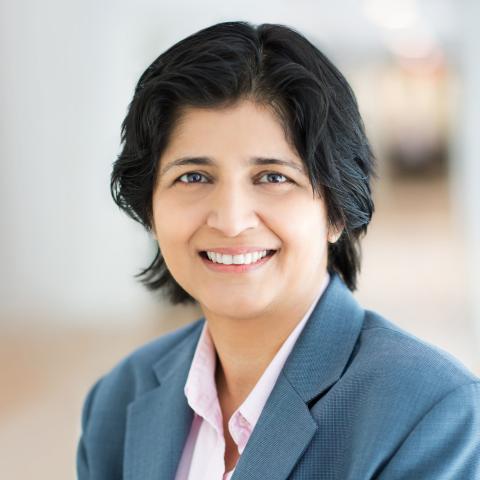Former cricket star Imran Khan may become the next prime minister of Pakistan and achieve a personal goal, but this election and his premiership will not be good for the country, for neighbours like India and Afghanistan, or for the US. The allegations of rigging put forth by all political parties even before the release of the final results mean that Imran’s mandate is under question before he even takes over power.
Today, Pakistan’s military-security establishment is even more firmly in the puppet master’s seat than it was in 2008. Islamist sectarian and jihadi organizations are deeply entrenched within society, moderate and progressive political parties are on the backfoot, media and civil society fear for their lives, and the economy is in the doldrums. There is also little likelihood of Khan instituting any changes in domestic or foreign policy that will reassure Pakistan’s neighbours or the international community, including the US, or stabilize Pakistan internally. This is Pakistan’s third successive election since 2008 but it demonstrates a lack of change in the fundamental reality in the country.
Pakistan has spent slightly less than half of the last seven decades under military rule and there have been few elections in Pakistan that have been considered truly free and fair. However, even by those standards, there is a near consensus that this has been Pakistan’s “dirtiest” election yet. The process started almost a year before the election when former prime minister Nawaz Sharif was removed from power and banned from politics on allegations of corruption and his party was targeted in a sustained campaign involving key institutions of the Pakistani state. This was combined with overt and covert support for political novice Khan’s Pakistan Tehreek-e-Insaaf (PTI) party.
The Pakistani establishment—a word used for the military, intelligence and segments of the bureaucracy and judiciary—has never trusted the the country’s citizens or their mandate. Every civilian populist leader over the last seven decades has been removed from power on grounds of corruption by the establishment and its allies. Thus, every few years, the Pakistani establishment tries to get rid of the existing bunch of politicians and bring in new ones, hoping that this time round their laboratory experiment will succeed.
Khan is the current “favourite” of the Pakistani establishment. However, what this election has demonstrated is that while a majority of Pakistanis may have accepted this manipulation a few decades earlier, there is significant push back today by political parties and the civil society. Instead of bringing stability, the machinations during this election will only make Pakistan more unstable.
Pakistan ranks high on the list of countries that are dangerous for journalists and Pakistani intelligence service’s media wing, ISPR (Inter Services Public Relations) has for years framed the discourse within the media. Over the last year, there has been a blatant censorship of Pakistani news organizations and clamping down on any critique of the deep state of a much higher magnitude than has been witnessed before, and there is no sign that this will stop now that the election is over.
Under the cover of an order issued by the Election Commission of Pakistan (ECP), the military deployed three times the number of troops in this election than during the 2013 election. Notwithstanding the large military presence, ostensibly to protect Pakistanis, this election has actually been one of the bloodiest, with the independent human rights watchdog, Human Rights Commission of Pakistan, remarking that elections should be “gatherings” not “killing fields”. As in previous elections, the campaign rallies attacked were those of moderate political parties, not their Islamist counterparts.
This election also witnessed an open attempt by the Pakistani establishment to “mainstream” leaders belonging to Islamist sectarian and jihadi outfits—from global terrorist and mastermind behind the 2008 Mumbai terror attacks Hafiz Saeed to firebrand Barelvi cleric Khadim Hussain Rizvi and sectarian ideologue Aurangzeb Farooqi. Ever since the 1970s, the Pakistani intelligence has sought to push back against the more progressive and moderate civilian parties by bolstering what are often referred to as the Islam pasand parties. In earlier years it was the Jamaat e Islami and Jamiat Ulema e Islam, later the Muttahida Majlis e Amal, and today it is the Milli Muslim League (political outfit for Saeed’s Jamaat ud Dawa) and Pakistan Rah i Haq Party (political outfit for the proscribed Sunni organization Ahl al Sunnat Wa Jamaat).
How many of these Islamists will enter Pakistan’s national and provincial assemblies is not yet known, but their presence inside these legislative institutions will provide the Pakistani security establishment with political cover for continuing with its policy of jihad as a lever of domestic and foreign policy.
While Khan has been reticent to provide details about his domestic and foreign policies, what is clear is the alignment between his views and that of the deep state: sympathy for the Afghan Taliban and the Kashmir-focused jihadi groups, and belief that the US betrayed Pakistan and is close to India and that China is a more dependable ally.
Lacking a credible mandate and absent an overhaul of Pakistan’s foreign and security policy, a government led by Khan will be unable to reassure neighbours or the international community and avoid the path of increasing isolation, economic doldrums and domestic instability.

















